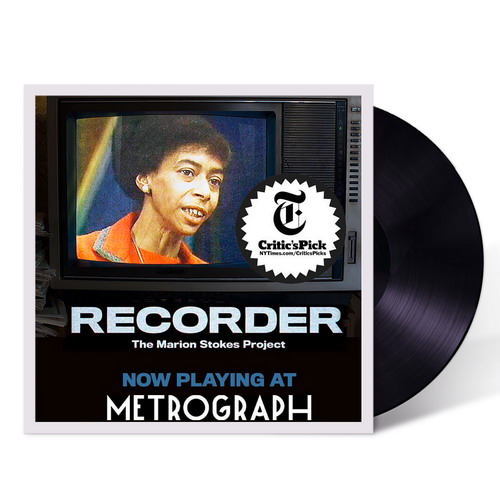19.11.20гҖҗең°йҒ“зҫҺиҜӯ123гҖ‘ ж—¶д»Јз§ҳеҪ•еӯҳжЎЈеҘҮдәәпјҡдёғдёҮеҚ·иғ¶еёҰеҪ•дёӢ30е№ҙз”өи§Ҷж–°й—»
time:2019-11-20 Source:
11жңҲ20ж—Ҙжңүи¶Јзҡ„е…Қиҙ№иӢұиҜӯиҜҫгҖҠиӢұиҜӯPKеҸ°гҖӢдә¬жҷ¶дё»жҢҒ
иҠӮзӣ®зӣҙж’ӯпјҡ14пјҡ00-15пјҡ00 еҪ“жҷҡйҮҚж’ӯпјҡ22пјҡ00-23пјҡ00
е‘Ёдёүеҳүе®ҫ пјҡ #и·ҹиҖҒзҫҺеӯҰең°йҒ“зҫҺиҜӯ#
е‘Ёдёүдё»йўҳпјҡReal Life EnglishгҖҗең°йҒ“зҫҺиҜӯ123гҖ‘ж—¶д»Јз§ҳеҪ•еӯҳжЎЈеҘҮдәәпјҡдёғдёҮеҚ·иғ¶еёҰеҪ•дёӢ30е№ҙз”өи§Ҷж–°й—»
The Recorder: 30 years of TV news (The Marion Stokes Project)

дәҶи§Јд»Ҡж—ҘиҜҫе Ӯпјҡ
Dialogue : (иҜҫе Ӯе…Ёж–Үжң¬дәҺеҫ®дҝЎе…¬дј—еҸ·гҖҗиӢұиҜӯPKеҸ°гҖ‘иҜҫеҗҺеҸ‘йҖҒпјҢеҸӮдёҺзӣҙж’ӯдә’еҠЁдёӯиҜ‘иӢұз»ғд№ йңҖеҠ дә¬жҷ¶еҫ®дҝЎgoingforgold2018 жӢүе…ҘзҫӨ
dialogue 1
Jingjing:гҖҖHow are you, Mark?гҖҖ---------------?
Mark:гҖҖI'm afraid not, Jingjing.гҖҖJust like most people, I'm going through the ---------- and trying not to --------------in my work.
Jingjing:гҖҖThat sounds pretty -------.гҖҖI've had a bit -------- to work on projects I enjoy, but have mostly been busy --------- my regular work.гҖҖHey, did you hear about the lady in Philadelphia who---------------------?
Mark:гҖҖI heard that story mentioned as a---------when I was listening ------------.гҖҖDo you know much about it?
Jingjing:гҖҖYeah.гҖҖI was really---------I started reading the ----------.гҖҖFirst of all, her name is Marion Stokes.гҖҖShe was very --------- and then wanted to live a more -----------.
Mark:гҖҖOkay.гҖҖYou said 30 yearsвҖ”----------------?
Jingjing:гҖҖWell, she-------- in 2012.гҖҖHer first recording was of a Nightline broadcast about the Iranian ---------------------.
Mark:гҖҖThat was in the late ------, wasn't it(?), during Jimmy Carter's ---------.
Jingjing:гҖҖThat's right, 1979.гҖҖIt began in November and ------r-.
Mark:гҖҖWow, it'd be interesting enough just to se---------гҖҖI remember seeing Ted Koppel, the host of Nightline, ----------------
Jingjing:гҖҖWell, -----------------------------------------------------
Mark:гҖҖSo, ---------------: she recorded the news once a day for 30 years?
Jingjing:гҖҖNo.гҖҖShe started-------- from major networks.гҖҖThis was just at the beginning of the----------.гҖҖShe left her machines running during the -------- and p-----------------------
Mark:гҖҖWow.гҖҖIf someone puts all that on the Internet, you could visit the website and ------------the channels in 1985 or 1995.гҖҖIt be cool just to---------------- instead of edited videos.
Jingjing:гҖҖThat's thinking like a-------------------, Mark.
Mark:гҖҖI bet her project is more-------- than that.гҖҖWhat do you think of it, Jingjing.
Jingjing:гҖҖI had a lot of ideas as I was reading the story. ------------------------ here while we're talking, so that I get the facts right.
Mark:гҖҖSure.гҖҖNo--------------
dialogue 2
Jingjing:гҖҖOk.гҖҖSo here's the first article I saw.
Mark:гҖҖOh, that's a good ----------------.гҖҖI get a lot of my news from there.
Jingjing:гҖҖRight.гҖҖAnd here's the ---------.гҖҖIt's called The Recorder: the Marion Stokes ------------------.гҖҖ
Mark:гҖҖWait, what?гҖҖThere's a movie about a person ---------------?
Jingjing:гҖҖThere is.гҖҖI -------seen it.гҖҖBut the ------------is enough to make a movie.гҖҖIt's cool to see what television looked like -------------- don't you think?
Mark:гҖҖWell, I think it's something we-------------------------
Jingjing:гҖҖYes, but in the 1980s and 90s, even television stations were ----------------- and reusing the tapes.
Mark:гҖҖWow, now that you mention tapes, I'm wondering------------ to record 30 years of non-stop footage on------------------TV channels.
Jingjing:гҖҖHold on, I saw that number...гҖҖHere it is:----------------------
Mark:гҖҖWhoa!гҖҖWhere did she put all of them?
Jingjing:гҖҖShe sent them out to a---------гҖҖShe----------------her project.гҖҖSo, she even had the new tapes -------------------in small batches.
Mark:гҖҖWow, a project that--------- for three decadesвҖ”and hardly----------- about it!
Jingjing:гҖҖYep.гҖҖAnd she also read ----------- per day, and saved most of those.
Mark:гҖҖI've heard of people like that in -----------where I've lived and visitedвҖ”people who---------.гҖҖBut here it sounds like her---------- -------------------
Jingjing:гҖҖYeah.гҖҖWho would have known an old lady in a small apartment could ------------ for preserving the-------------------the 20th century?
Mark:гҖҖWell, I'll ------------ for that movie about her.гҖҖHopefully there's also a website where people can -----------------.
Jingjing:гҖҖI'd watch it too.
Mark:гҖҖThanks for sharing the story, Jingjing!
new words and phrases
from dialogue 1
sideline (noun)гҖҖan additional or auxiliary story, often-times provided as a link or mentioned verbally in a news broadcast, so that people can continue reading the story under the current headline and remember the keywords for the sidelined story to read later
<be> pulled in <by something>гҖҖ(phrasal verb)гҖҖbecome interested in something, want to keep reading
let me get this straightгҖҖ(a way of asking for clarification and confirmation) (usually after this, the person asking repeats what he/she thinks he/she just heard in slightly different words)
24-hour news cycle (noun) (the word вҖңcycleвҖқ is an echo from when TV news aired every evening and a fat Sunday newspaper meant in-depth coverage of issues spanning several days or weeks) the current condition of journalism, since the takeover by cable news and the world-wide web: a rush to publish stories and catch readers with flashy headlines, a general tendency toward sensationalism and fear-mongering
flip through the channelsгҖҖ(verb phrase)гҖҖuse a remote control to watch a few seconds or minutes of TV on each station, then changing over to another, without stopping to watch any one full show
from dialogue 2
take <something> for granted (verb phrase)гҖҖaccept something as common, expect it to always be there
archive (noun)гҖҖa formal and well-organized system for storing information, in its originally-published form
digital media (noun)гҖҖrecorded audio and video in digital form (so that it can easily be stored on a computer)
жҺЁиҚҗRECOMMEND
- 16.6.27 иӢұж–Үз”өеҸ°ең°йҒ“зҫҺиҜӯеҸЈиҜӯз»Ҹе…ё(дәҢ)Topic 5 жңүжңӢиҮӘиҝңж–№жқҘвҖў жңәеңәжҺҘдәәпјҢж¬ўиҝҺ马е…ӢиҖҒеёҲ Welcome Mark
- 16.6.28 жңҖз®ҖиӢұиҜӯиҜӯжі•гҖҗејәи°ғеҸҘзІҫи®ІгҖ‘(1)It is/was that/whoвҖҰ.ејәи°ғеҸҘиҝһжҺҘиҜҚгҖҒж—¶жҖҒиҜҰи§Ј
- 16.6.29 #дёҮиғҪзҫҺиҜӯеҸҘеһӢ# 第дёҖеҸ‘гҖҗGot to get гҖ‘зҷҫжҗӯеҸҘ(1)
- 16.6.30 гҖҗд»ҺABCејҖе§Ӣжү”жҺүеӯ—幕зңӢгҖҠиҖҒеҸӢи®°гҖӢгҖ‘е№ҝж’ӯй…ҚеҘ—ж•ҷжқҗзі»еҲ—иҜҫе Ӯ第68и®І
- 16.7.1 дёҚе…іжіЁең°зҗғзҡ„еҘҘж–ҜеҚЎеҪұеёқдёҚжҳҜеҘҪе’Ңе№іеӨ§дҪҝпјҢ е°ҸжқҺеӯҗиҒ”еҗҲеӣҪгҖҠе·ҙй»Һж°”еҖҷеҚҸе®ҡгҖӢзІҫеҪ©жј”и®ІиөҸжһҗ
